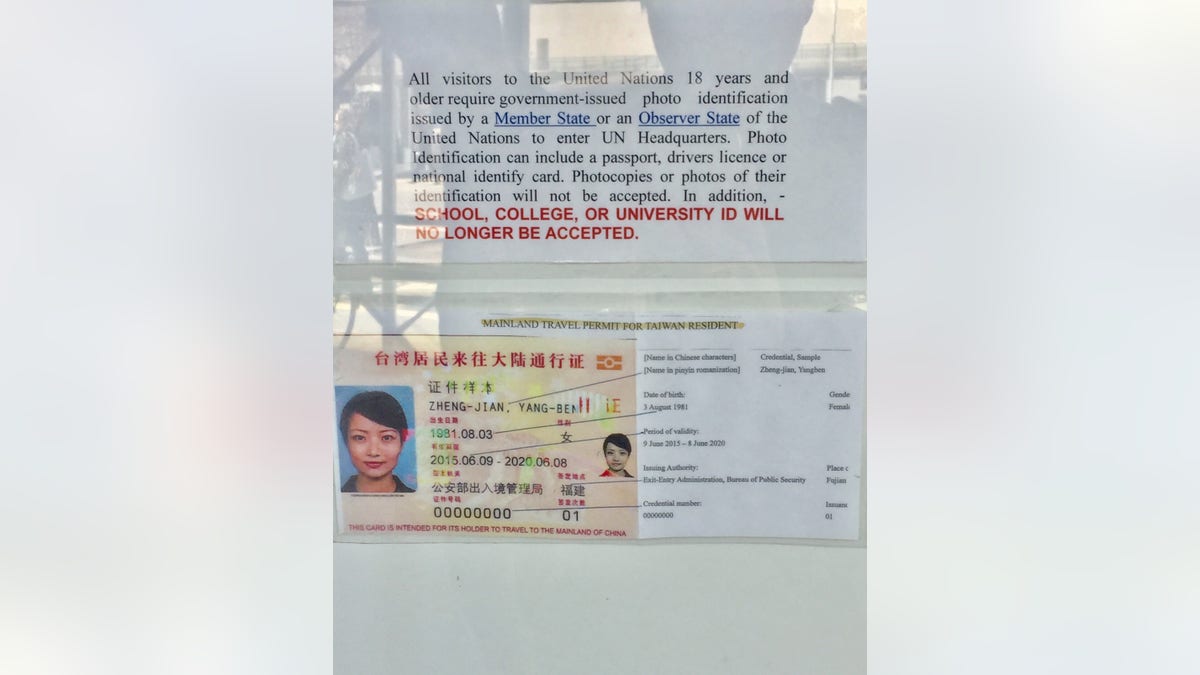
The United Nations calls itself a world body. It offers splendid tours of its New York headquarters, for $22, to visitors and tourists who come from every country around the globe. Every country, that is, except Taiwan, whose citizens are not welcome.
That’s because since 1971, the United Nations has recognized the People’s Republic of China as the only legitimate government of China, and views Taiwan as part of China.
A sign outside the expensively renovated U.N. Secretariat tower in Manhattan says, “All visitors to the United Nations 18 years and older require government-issued photo identification issued by a Member State or an Observer State of the United Nations to enter UN Headquarters. To make clear the sign’s intent, and at whom it is aimed, the U.N. displays a facsimile of a “Mainland travel permit for Taiwan Residents.”
You may be Chinese, but unless you’re in favor with communist China, you aren’t getting into the U.N.
“These discriminatory policies are serious violations against the fundamental human rights of the people of Taiwan, erode the principles of equality, and contradict the charter of the United Nations,” says Brian Su, the deputy director general of the Taipei Economic and Cultural Office in New York. He’s been posted in the United States since 2015, the year that the doors of the “world body” were slammed shut to his countrymen.
By contrast, Palestinians living in Israel are not required to show Israeli-issued documents. That’s because Palestine, like the Vatican, is an observer state at the U.N. and has its own ID documents.
Even member states of questionable character are treated better than Taiwan. The few very lucky North Koreans who might find themselves in New York can use their country’s passport to enter the U.N. So can Iranians, Venezuelans and Syrians, whose governments aren’t exactly devoted to world peace.
Ever heard of a Taiwanese terrorist? Me either. But a Nobel Peace Prize Laureate, Liu Xiaobo, died this month after eight years in a mainland Chinese prison.
One of the first congratulatory phone calls President Trump got after winning the 2016 election was from Taiwan’s president Tsai Ing-wen. Diplomats and the media freaked out -- as they continue to do at anything the president does or says -- at Trump’s disdain for tradition. Like the U.N., the United States cut its official relations with Taiwan to placate Beijing, and views Taiwan as a part of China. But Taiwanese are welcome in America with their own passports.
The United States pays about 22 percent of the U.N.’s budget. China, with an economy roughly equal to America’s, pays about eight percent. Demanding that that gap be eliminated would be one good move for Trump to take. Restoring Taiwan’s dignity at the so-called world body would be another.








































